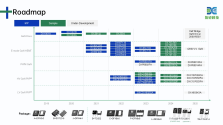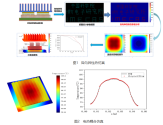Nitrogen Silicon Technology completes a new round of strategic investment of tens of millions to accelerate GaN technology innovation and market layout
Nitrogen Silicon Technology, a leading domestic GaN technology company, announced the successful completion of a new round of tens of millions of strategic investment, led by Shanghai Simi Enterprise Management Partnership and followed by Nanjing Lanpu High-Quality Equity Investment Fund (Limited Partnership). This financing will further strengthen Nitrogen Silicon Technology's leading position in the field of GaN semiconductors and accelerate its technological innovation and market expansion.

Nitrogen Silicon Technology, a leading domestic GaN technology company, announced the successful completion of a new round of tens of millions of strategic investment, led by Shanghai Simi Enterprise Management Partnership and followed by Nanjing Lanpu High-Quality Equity Investment Fund (Limited Partnership). This financing will further strengthen Nitrogen Silicon Technology's leading position in the field of GaN semiconductors and accelerate its technological innovation and market expansion.


